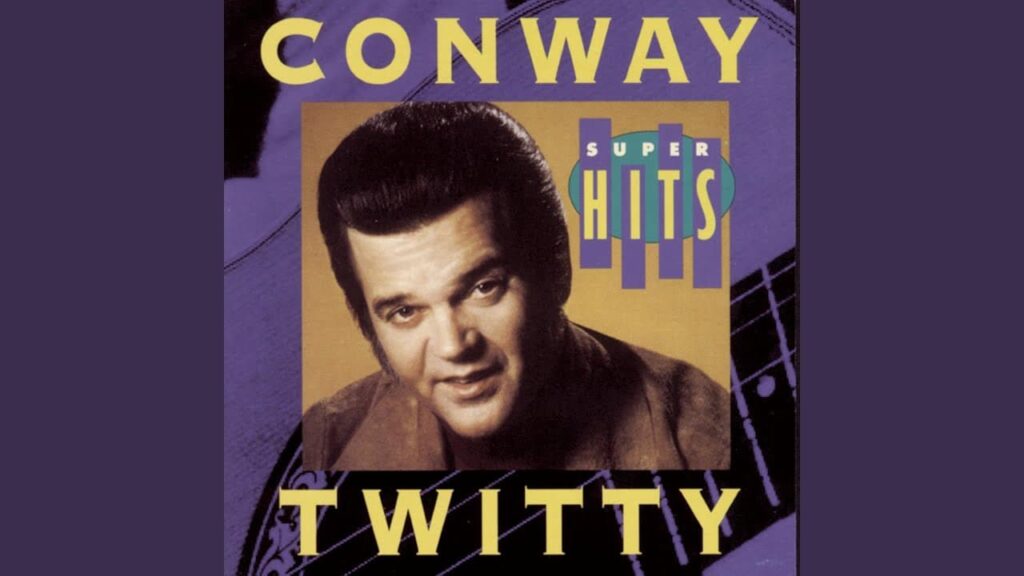
A Regretful Plea: The Heartbreaking Echo of a Past Love’s Unanswered Call and Lingering Sorrow
Conway Twitty‘s deeply poignant and emotionally charged duet, “Don’t Cry Joni”, is a powerful testament to his unparalleled ability to convey complex narratives of love, loss, and profound regret. Released as a single in 1975, this heartbreaking ballad, featuring the raw and affecting vocals of his then-teenage daughter, Joni Twitty, became a significant hit. It soared to number 4 on the Billboard Hot Country Singles chart, proving once again Twitty‘s enduring connection with his audience and his knack for selecting songs that struck a deep emotional chord. While not a crossover pop smash, its success on the country charts solidified its place as a beloved classic, cherished for its raw vulnerability and the compelling dynamic between father and daughter. Featured on his 1975 album, “Linda on My Mind” (which topped the Billboard Top Country Albums chart), “Don’t Cry Joni” became a fan favorite, further cementing Twitty‘s reputation as “The High Priest of Country Music” and a master of the tear-in-your-beer ballad, appealing to millions who understood the ache of what might have been.
The story behind “Don’t Cry Joni” is particularly unique and touching, given the involvement of Conway Twitty‘s own daughter, Joni Lee Twitty. The song was written by Conway Twitty himself, drawing inspiration from the timeless theme of a lost love and the subsequent regret. What makes this track so compelling is the creative decision to feature Joni Twitty in a conversational, almost pleading, role, asking her father why he left her mother. This narrative device instantly adds layers of authenticity and raw emotional depth to the song, making it feel less like a performance and more like a deeply personal confession. Conway Twitty reportedly wrote the song with his daughter’s specific vocal talents and their real-life father-daughter dynamic in mind. The conversation portrayed in the lyrics, where the father tries to explain the complexities of his past choices to his seemingly heartbroken daughter (who shares the name of his former love), adds a profound level of pathos. It’s a poignant exploration of how past romantic decisions can echo through generations, affecting not just the former lovers but also their children, creating a universal sense of empathy for the characters involved.
The meaning of “Don’t Cry Joni” is a deeply poignant and multi-layered exploration of profound regret, the lingering pain of a past love, and the echoes of heartbreak that reverberate through time, even affecting future generations. It’s a song about a man’s sorrowful confession to his daughter, explaining why he left her mother (Joni) and the lasting sorrow he feels for causing pain and losing a cherished relationship. The lyrics convey a powerful sense of remorse for past decisions, a yearning for what might have been, and the heavy burden of carrying that unfulfilled love. The daughter’s questioning, “Don’t cry, Daddy, don’t cry / Why did you leave her? Tell me why?” perfectly captures the intergenerational impact of heartache and the innocent, yet piercing, desire for understanding. It speaks to the universal human experience of grappling with the consequences of one’s choices, the bittersweet reality of unrequited or lost love, and the profound weight of regret that can follow one for a lifetime, making it a timeless ballad of enduring sorrow and the hope for eventual forgiveness, both from others and from oneself.
Conway Twitty‘s vocal performance on “Don’t Cry Joni” is simply masterful, showcasing his signature blend of tender sincerity and profound emotional depth. His lead vocal, a rich baritone, conveys a palpable sense of weary resignation and deep-seated regret, making the listener feel the weight of his past choices. The inclusion of Joni Twitty‘s youthful, slightly pleading voice adds an extraordinary dimension to the song, her innocent questions providing a heartbreaking counterpoint to her father’s sorrowful explanations. Their vocal interplay is incredibly effective, creating a raw, conversational intimacy that pulls the listener directly into the narrative. The instrumentation is classic 1970s country, featuring a prominent, weeping steel guitar that perfectly mirrors the melancholic mood, gentle piano chords, and a steady, unobtrusive rhythm section that allows the emotional weight of the vocals and lyrics to remain at the forefront. This understated yet effective production enhances the song’s intimate feel, making “Don’t Cry Joni” a truly unforgettable and emotionally resonant duet that continues to move listeners decades later.
Listening to “Don’t Cry Joni” today evokes an immediate, profound wave of nostalgia, transporting us back to a time when country music dared to explore the most intricate and painful facets of human relationships with such raw honesty. It reminds us of Conway Twitty‘s unparalleled gift for embodying profound regret and conveying it with a quiet dignity that resonates deeply. For those of us who recall its pervasive presence on the airwaves, this song remains a cherished gem, a timeless anthem for the ache of what might have been and the enduring legacy of a love that, despite its ending, continues to echo through the corridors of time. It’s a melody that, even after all these years, continues to resonate with its poignant truth, gently reminding us that some heartbreaks are so profound, they linger for a lifetime, even as we whisper, “Don’t cry, Joni.”